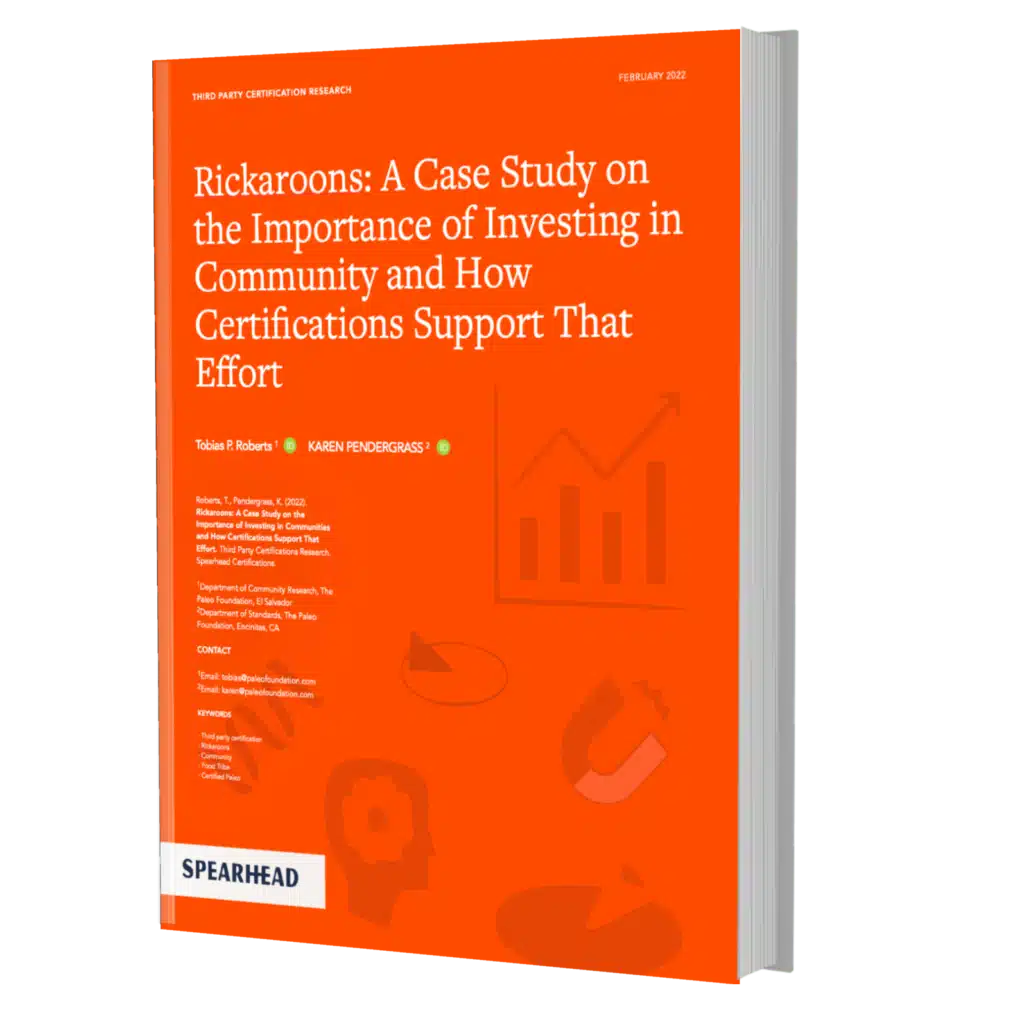This meant that we couldn’t share one of her favorite things- a traditional chocolate chip cookie. She put it to me simply one day- If you really love me, you’ll make me a cookie I can eat.” [3].
After learning the basics of baking and experimenting with alternatives to the grain, flour, sugar, and eggs that are the basis for most cookie recipes, Rick and his girlfriend came up with a decent healthy cookie. The resulting company called Ultimate Naturals Cookie Co. was sold in Whole Foods and lasted for two years.
The initial experience of finding healthy baked snacks is what led Rick towards developing the all-natural Rickaroon. Rick found that with the right mix of ingredients, the sugar, butter, flours, and other common ingredients in cookies, energy bars, and other snacks was simply not necessary. The original Chocolate blond Rickaroon, for example, only contains coconut (in the shape of oil, flakes, and nectar for sweetening), dark chocolate chips, and almond butter.
Rick´s son Grant says that that while it is sometimes hard to find reliable sources for the organic, vegan, and gluten-free ingredients that Rickaroons relies on, “the final product is…the all-of-the-above cookie: gluten-free, vegan, organic, Paleo, soy free, and most importantly – tastes like heaven. The coconut and almond butter not only taste great together but yield a nice, slow-burning fuel for your body.” [4]
While it might have been easier (and cheaper) to produce an energy bar with soy, sugar, and palm oil as the basic ingredients, Rick relates that “one of the many things we take pride in is that we have stuck to our standards when it would have been so much easier to forgo the certifications or the quality of ingredients, and just make our recipes with conventional ingredients. We make our decisions within the family and persevere through the lean times without fracturing our relationships.” [3]


